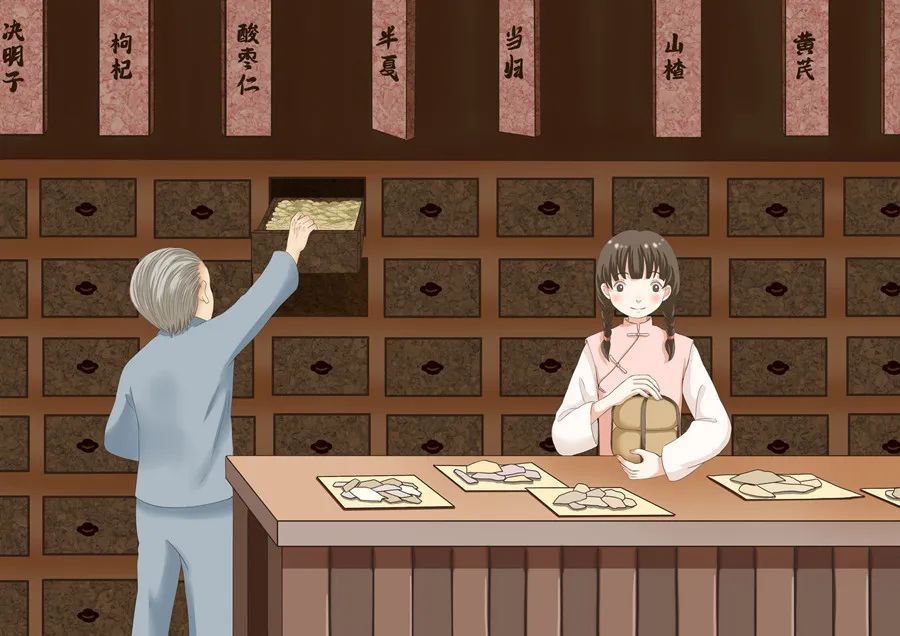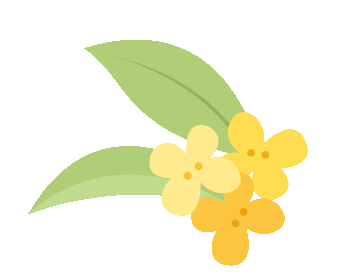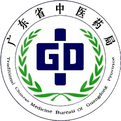The “Yao Xing Fu”, also known as “Su Wen Chao” or “Mai Jue Chao”, is an ancient text whose authorship remains unknown. It is believed to have originated during the Jin and Yuan dynasties and serves as an introductory book for beginners in Chinese herbal medicine.
This book categorizes 248 commonly used Chinese herbs into four properties: Cold, Hot, Warm, and Neutral, written in a rhymed format that is concise and easy to memorize. Its insightful summaries of herbal properties have made it a favorite among readers throughout history, remaining popular and relevant.

Chapter One: Cold Properties of Herbs

Among all herbs, this category is the coldest.
Rhinoceros Horn (Xi Jiao) clears heart heat;Antelope Horn (Ling Yang) clears lung and liver heat.
Alisma (Ze Xie) promotes urination and replenishes yin deficiency;Seaweed (Hai Zao) disperses goiter and treats hernias.
Chrysanthemum (Ju Hua) brightens the eyes and clears head wind;Belamcanda (She Gan) treats throat closure and dispels toxins;
Coix Seed (Yi Yi Ren) treats beriberi and eliminates wind-dampness;Lotus Root (Ou Jie) resolves blood stasis and stops vomiting and nosebleeds.
Trichosanthes Fruit (Gua Lou Zi) descends qi and moistens the lungs, also broadening the chest;Plantago Seed (Che Qian Zi) stops diarrhea and promotes urination, especially beneficial for eyesight.
Thus, Huang Bai is used for sores, and Rhizoma Ampelopsis (Dou Ling) treats cough.
Rehmannia Root (Di Huang) has effects of reducing fever and eliminating steaming;Peppermint (Bo He) is suitable for dispelling wind and clearing swelling.
Broadening the chest and descending qi, Bitter Orange Peel (Zhi Ke) is slow, while Bitter Orange (Zhi Shi) is fast; treating muscle and releasing the exterior, Kudzu Root (Ge Gen) is first, and Bupleurum (Chai Hu) follows.
Hundred Parts (Bai Bu) treats lung heat and can stop cough;Gardenia (Zhi Zi) cools the heart and kidney, especially suitable for nosebleeds.
Scrophularia (Xuan Shen) treats heat toxins and abscesses, clearing the throat and diaphragm;Angelica (Sheng Ma) dispels wind-heat and toxins, dispersing sores.
It is said that Powdered Fat (Ni Fen) suppresses the lungs and constricts the anus;Gold Leaf (Jin Bo) calms the heart and stabilizes the spirit.
Artemisia (Yin Chen) is the main herb for jaundice and promotes urination;Plantago (Qu Mai) treats heat dysuria with blood.
Natron (Pu Xiao) opens the large intestine, breaking blood and stopping phlegm accumulation;Gypsum (Shi Gao) treats headaches, relaxes muscles, and dispels thirst.
Qian Hu (Qian Hu) eliminates phlegm from both internal and external sources;Talc (Hua Shi) promotes urination and resolves constipation.
Asparagus (Tian Men Dong) stops cough, nourishes blood, and moistens the heart and liver;Ophiopogon (Mai Men Dong) clears the heart, relieves thirst, and eliminates lung heat.
It is also said that for treating deficiency vexation and eliminating nausea, one must use Bamboo Shavings (Zhu Ru); for unblocking constipation and guiding blood stasis, one must rely on Rhubarb (Da Huang).
Huang Lian treats cold-heat dysentery and strengthens the stomach to stop diarrhea;Epimedium (Yin Yang Huo) treats wind-cold bi syndrome, replenishing yin deficiency and assisting yang.
Reed Root (Mao Gen) stops bleeding and treats nosebleeds;Stonecrop (Shi Wei) promotes urination and benefits the small intestine.
Cooked Rehmannia (Shu Di Huang) nourishes blood and treats deficiency damage;Raw Rehmannia (Sheng Di Huang) is suitable for blood and treats eye sores.
Red Peony (Chi Shao) breaks blood and treats abdominal pain, also relieving heat;White Peony (Bai Shao) nourishes deficiency and generates new blood, especially effective in reducing heat.
For reducing swelling and eliminating water, one can use Morning Glory (Qian Niu Zi); for eliminating heat toxins and killing insects, one can use Guanzhong (Guan Zhong).
Gold Bell (Jin Ling Zi) treats hernias and replenishes essence and blood;Daylily Root (Xuan Cao Gen) treats five types of dysuria and reduces breast swelling.
Platycladus Leaf (Ce Bai Ye) treats blood loss and bleeding disorders;Cyperus (Xiang Fu) regulates blood and qi, especially for women.
Earth Skin (Di Fu Zi) promotes urination and can wash away skin wind;Mountain Bean Root (Shan Dou Gen) resolves heat toxins and can relieve throat pain.
White Lichen (Bai Xian Pi) dispels wind and treats weak tendons, also alleviating stubborn leg pain;Inula Flower (Xuan Fu Hua) brightens the eyes, treats head wind, and dispels phlegm cough.
Moreover, Schizonepeta (Jing Jie Sui) clears head and eyes, stopping bleeding; Trichosanthes Root (Gua Lou Gen) treats jaundice and toxic abscesses, relieving thirst and resolving phlegm worries.
Earth Elm (Di Yu) treats bleeding and diarrhea;Kombu (Kun Bu) breaks hernias and disperses goiters and tumors.
For treating febrile diseases and relieving deficiency vexation, the efficacy of Bamboo Leaf (Dan Zhu Ye) is doubled; for eliminating stagnant qi and breaking blood stasis, the use of Peony Root (Mu Dan Pi) is the same.
Anemarrhena (Zhi Mu) stops cough and reduces bone steaming;Oyster Shell (Mu Li) astringes essence and stops night sweats.
Fritillaria (Bei Mu) clears phlegm, stops cough, and benefits the heart and lungs;Platycodon (Jie Geng) opens the lungs, benefits the chest, and treats throat issues.
As for Huang Qin, it treats various heat conditions and is also effective for the five types of dysuria;Sophora Flower (Huai Hua) treats intestinal wind and also addresses hemorrhoids and dysentery.
Common Mountain (Chang Shan) regulates phlegm and treats warm malaria;Lingusticum (Ting Li) purges lung heat and promotes water qi.
These are the sixty-six herbs with cold properties.
Chapter Two: Hot Properties of Herbs

Herbs with warm and hot properties must be examined carefully.
To warm the middle, use Cardamom (Bi Ba); for dispersing, use Ginger (Sheng Jiang).
Schisandra (Wu Wei Zi) stops cough and phlegm, also nourishing kidney water;Fennel (Xiang Huo) treats tuberculosis and strengthens yang.
Chuanxiong (Chuan Xiong) dispels wind-dampness, nourishes blood, and clears the head;Ligusticum (Xu Duan) treats bleeding and strengthens tendons and bones.
Ephedra (Ma Huang) induces sweating to treat cough and reverse conditions;Chives (Jiu Zi) strengthen yang and treat leukorrhea.
Chuan Wu (Chuan Wu) breaks accumulations, has phlegm-dispelling and wind-dampness relieving properties;Tian Xiong (Tian Xiong) disperses cold and is a medicine that assists yang.
Observe that Chili Pepper (Chuan Jiao) reaches the lower body, while Dried Ginger (Gan Jiang) warms the middle.
Fenugreek (Hu Lu Ba) treats cold hernias; Fresh Wormwood (Sheng Juan Bai) breaks stagnation and promotes blood flow.
White Atractylodes (Bai Zhu) dispels phlegm, warms the stomach, and also stops vomiting and diarrhea;Calamus (Chang Pu) opens the mind, disperses cold, and also treats deafness.
Clove (Ding Xiang) invigorates the spleen and stomach, stopping vomiting;Galangal (Liang Jiang) alleviates heart pain caused by qi stagnation.
Epimedium (Rou Cong Rong) replenishes essence and benefits the kidneys;Sulfur (Shi Liu Huang) warms the stomach and drives out parasites.
Pepper (Hua Jiao) primarily dispels phlegm and eliminates cold;Qin Jiao (Qin Jiao) primarily alleviates pain and dispels wind.
Wu Zhu Yu (Wu Zhu Yu) treats cold qi in the heart and abdomen;Ling Sha (Ling Sha) calms the heart and alleviates palpitations.
To dispel kidney cold and assist the spleen and stomach, one must use Bi Cheng Qie (Bi Cheng Qie); for treating heart pain and breaking accumulations, use Qiong He (Qiong He).
Powdered Sand (Suo Sha) stops vomiting and diarrhea, stabilizing the fetus and transforming food and drink;Aconite (Fu Zi) treats cold and reverse stomach, strengthening yang.
White Cardamom (Bai Dou Kou) treats cold diarrhea, alleviating pain with Frankincense (Ru Xiang);Red Cardamom (Hong Dou Kou) stops sour vomiting, dispelling blood and killing parasites with Qian Qi (Gan Qi).
It is known that Deer Antler (Lu Rong) generates essence and blood, replenishing the waist and spine;Tiger Bone (Hu Gu) strengthens tendons and bones, dispelling cold, dampness, and toxic wind. (Note: On December 13, 2018, the National Forestry and Grassland Administration announced a delay in the implementation of regulations prohibiting the trade of rhinoceros and tiger products, strictly forbidding the use of rhinoceros horn and tiger bone in medicine.)
Sandalwood (Tan Xiang) calms cholera and alleviates heart pain;Deer Horn (Lu Jiao) secretes essence and alleviates waist and spine pain.
Vinegar (Mi Cu) reduces swelling and nourishes blood;Perilla (Zi Su) descends qi and disperses cold.
Hyacinth Bean (Bian Dou) assists the spleen, allowing wine to act as a medicine to break stagnation;Amber (She Xiang) opens the orifices, allowing scallions to promote sweating.
It is said that Five Spirits (Wu Ling Zhi) treats bleeding and regulates blood qi pain;Qilin (Qi Lin) stops bleeding and treats wounds.
Deer Antler (Mi Rong) strengthens yang to assist the kidneys;Angelica (Dang Gui) nourishes deficiency and tonifies blood.
Squid Bone (Wu Zai Gu) stops leukorrhea and also alleviates bleeding and eye diseases;Deer Horn Glue (Lu Jiao Jiao) stops bleeding and can replenish deficiency and weakness.
White Flower Snake (Bai Hua She) treats paralysis and relieves itching from wind rashes;Black Snake (Wu Shao She) treats numbness and dispels sores and heat.
Wuyou (Wu Yao) has properties for treating cold qi;Yuyuliang (Yu Yu Liang) treats bleeding and regulates menstruation.
Castor Bean (Ba Dou) promotes phlegm and water, breaking cold accumulations;Angelica (Du Huo) treats various wind conditions, regardless of duration.
Mountain Cornelian (Shan Zhu Yu) treats dizziness and nocturnal emissions;White Quartz (Bai Shi Ying) treats cough and purulent sputum.
Magnolia Bark (Hou Po) warms the stomach and alleviates nausea and bloating, also dispelling phlegm;Cinnamon (Rou Gui) promotes blood circulation and alleviates heart pain, stopping sweating effectively.
Thus, Carp (Jia Yu) has the function of warming the stomach;Substitute Red (Dai Zhe) is a calming liver agent.
Incense (Chen Xiang) descends qi and nourishes the kidneys, stabilizing cholera and heart pain;Orange Peel (Ju Pi) opens the stomach, dispelling phlegm and guiding stagnant qi.
These are the sixty herbs with hot properties.
Chapter Three: Warm Properties of Herbs

Warm herbs are summarized, and practitioners are well aware.
Wood Fragrance (Mu Xiang) regulates qi stagnation;Pinellia (Ban Xia) is the main herb for phlegm-dampness.
Atractylodes (Cang Zhu) treats blindness and is suitable for drying the spleen and eliminating dampness;Radish (Luo Bo) reduces bloating, descends qi, and treats facial issues.
Moreover, Stalactite Powder (Zhong Ru Fen) nourishes lung qi and also treats lung deficiency;Blue Salt (Qing Yan) treats abdominal pain and nourishes kidney water.
Yam (Shan Yao) treats waist dampness;Donkey-hide Gelatin (A Jiao) stops diarrhea and cough.
Red Stone Fat (Chi Shi Zhi) treats turbid essence and stops leakage, also replenishing during bleeding;Yangqi Stone (Yang Qi Shi) warms the uterus to strengthen yang and also treats impotence.
Indeed, Purple Aster (Zi Wan) treats cough, Fang Feng (Fang Feng) dispels wind, Common Aster (Cang Er Zi) clears the brain and stops nasal discharge, Wuling (Wei Ling Xian) disperses wind and opens the qi.
Asarum (Xi Xin) dispels head wind, stops cough, and treats tooth pain;Mugwort (Ai Ye) treats bleeding, stabilizes the fetus, and treats dysentery.
Qiang Huo (Qiang Huo) brightens the eyes, dispels wind, and eliminates dampness and swelling;Angelica (Bai Zhi) stops bleeding and treats swelling, also addressing hemorrhoids and abscesses.
For reducing wind-dampness pain, one can use Yin Yu Ye (Yin Yu Ye); for treating fractures, one can use Guo Sui Bu (Guo Sui Bu).
Patchouli (Huo Xiang) dispels bad qi and stabilizes cholera;Grass Fruit (Cao Guo) warms the spleen and stomach, stopping vomiting.
Morinda (Ba Ji Tian) treats yin hernias and leukorrhea, also nourishing the kidneys;Curcuma (Yuan Hu Suo) regulates qi, alleviating blood stasis, and assists in regulating menstruation.
It is said that Winter Jasmine (Huan Dong Hua) moistens the lungs, dispelling phlegm and cough to stabilize asthma;Nutmeg (Rou Dou Kou) warms the middle, stopping cholera and assisting the spleen.
Fang Feng (Fang Feng) travels through meridians to relieve pain;Polygonum Multiflorum (He Shou Wu) is a resource for treating sores and scabs.
Turmeric (Jiang Huang) descends qi and breaks up blood stasis;Stephania (Fang Ji) is suitable for reducing swelling and dispelling wind-dampness.
Common Peony (Gao Ben) dispels wind and is suitable for treating women’s pain;Yao (Xian Mao) nourishes the kidneys and supports weak qi.
It is said that Broken Paper (Po Gu Zhi) warms the kidneys, replenishing essence and treating injuries;Wood Quince (Xuan Mu Guo) enters the liver, treating beriberi and edema.
Apricot (Xing Ren) moistens the lungs and stops cough;Fennel (Hui Xiang) treats hernias and kidney pain.
Hawthorn (He Zi) generates essence and quenches thirst, also treating diarrhea;Qin Jiao (Qin Jiao) dispels wind and eliminates water, also relieving joint pain.
Areca Nut (Bing Lang) clears phlegm and eliminates water, killing small white worms;Eucommia (Du Zhong) nourishes the kidneys and adds essence, alleviating waist and knee heaviness.
It is known that Purple Quartz (Zi Shi Ying) treats palpitations and bleeding disorders;Orange Seed (Ju He) treats waist pain and hernias.
Gold Cherry (Jin Ying Zi) astringes essence;Perilla Seed (Zi Su Zi) descends qi and promotes saliva.
Light Fermented Soybeans (Dan Dou Chi) releases the exterior in cases of febrile diseases;Large and Small Thistle (Da Xiao Ji) eliminates fresh blood.
Wisdom (Yi Zhi) calms the spirit and treats frequent urination;Sesame (Ma Ren) moistens the lungs and promotes the six bowels.
It is also said that for replenishing weakness and draining pus, nothing is better than Astragalus (Huang Qi); for strengthening the waist and legs, nothing is better than Dog Spine (Gou Ji).
Dodder Seed (Tu Si Zi) nourishes the kidneys and brightens the eyes;Horse Flower (Ma Lin Hua) treats hernias and is beneficial.
These are the fifty-four herbs with warm properties.
Chapter Four: Neutral Properties of Herbs

Detailed discussion of herbal properties, neutrality is key.
Using Sand (Li Sha) to eliminate accumulations; using Dragon Tooth (Long Chi) to calm the spirit.
Green Peel (Qing Pi) regulates the diaphragm and eliminates bloating, also benefiting the spleen and stomach;Fox Nut (Qian Shi) benefits essence and treats turbid discharge, also replenishing true essence.
Horsetail (Mu Zei) clears eye obstructions and also treats bleeding;Flower Stone (Hua Rui Shi) treats wounds and promotes blood flow.
Cassia Seed (Jue Ming Zi) harmonizes liver qi and is a remedy for eye conditions;Gastrodia (Tian Ma) is the main herb for dizziness and dispels wind.
Licorice (Gan Cao) harmonizes all herbs and detoxifies, as it is neutral in nature;Dendrobium (Shi Hu) balances stomach qi and nourishes kidney deficiency, also treating weak legs.
Observing that Shang Lu (Shang Lu) treats swelling, Fupen (Fu Pen) benefits essence.
Amber (Hu Po) calms the spirit and disperses blood;Cinnabar (Zhu Sha) calms the heart and has spiritual properties.
Achyranthes (Niu Xi) strengthens the legs and replenishes essence, also treating waist pain;Dragon Bone (Long Gu) stops sweating and controls diarrhea, also treating blood loss.
Licorice (Gan Song) regulates wind qi and alleviates pain;Tribulus (Zhi Li) treats wind sores and brightens the eyes.
Ginseng (Ren Shen) moistens the lungs and calms the heart, assisting the spleen and stomach;Pollen (Pu Huang) stops bleeding and treats nosebleeds, also regulating menstruation.
Is it not that South Star (Nan Xing) awakens the spleen, alleviating concerns of wind phlegm and vomiting;Three Blades (San Ling) breaks accumulations and eliminates blood stasis.
Food (Mo Shi) is effective for diarrhea and has miraculous effects;Soapberry (Zao Jiao) treats wind phlegm and responds well.
Silkworm (Sang Jiao) treats nocturnal emissions;Duck Blood (Ya Tou Xue) treats severe edema.
Gecko (Ge Jie) treats cough and tuberculosis;Burdock Seed (Niu Bang Zi) disperses wind and resolves phlegm;Scorpion (Quan Xie) is the main herb for wind paralysis;Lotus Seed (Lian Ren) calms the spirit and alleviates anxiety.
It is said that Sang Ji Sheng (Sang Ji Sheng) nourishes blood and stabilizes the fetus, also alleviating waist pain;Large Belly (Da Fu Zi) eliminates bloating and descends qi, also harmonizing the stomach.
Small Grass (Xiao Cao) and Yuan Zhi (Yuan Zhi) both have calming properties;Akebia (Mu Tong) and Polyporus (Zhu Ling) are especially effective for promoting urination.
Lotus Flesh (Lian Rou) has the effect of clearing the heart and awakening the spleen;Myrrh (Mo Yao) is used for treating wounds and dispersing blood.
Yuan Li (Yu Li Ren) moistens the intestines and promotes blood flow, alleviating edema;Poria (Fu Shen) calms the spirit and enhances intelligence, alleviating anxiety.
White Poria (Bai Fu Ling) nourishes deficiency and is often used for heart and spleen issues;Red Poria (Chi Fu Ling) breaks blood stasis and primarily promotes urination without toxicity.
Thus, Barley (Mai Ya) assists the spleen in digesting food;Wheat (Xiao Mai) stops sweating and nourishes the heart.
White Aconite (Bai Fu Zi) dispels facial wind;Large Belly Skin (Da Fu Pi) treats edema.
White Mulberry (Sang Bai Pi) primarily treats bleeding;White Peony (Bai Shao) primarily treats asthma.
Peach Kernel (Tao Ren) breaks blood stasis and treats waist pain;Shen Qu (Shen Qu) strengthens the spleen and stomach, promoting appetite.
Five-Leaf (Wu Jia Pi) strengthens the bones for standing and walking;Biota Seed (Bai Zi Ren) nourishes the heart and spirit, providing benefits.
Moreover, Frankincense (An Xiang) dispels bad qi and alleviates abdominal pain;Winter Melon Seed (Dong Gua Ren) awakens the spleen, serving as a resource for food.
Silkworm (Jiang Can) treats various wind conditions causing throat closure;Lily (Bai He) nourishes the lungs and alleviates cough.
Red Bean (Chi Xiao Dou) clears heat toxins and is suitable for treating swellings;Loquat Leaf (Pi Pa Ye) descends rebellious qi and can treat nausea and vomiting.
Forsythia (Lian Qiao) drains pus and reduces swelling;Stone Fern Leaf (Shi Nan Ye) benefits the bones and skin.
Grain Bud (Gu Ya) nourishes the spleen;Ferula (Ai Wei) dispels evil qi and breaks accumulations;Purple River Car (Zi He Che) nourishes blood;Jujube (Da Zao) harmonizes the properties of herbs to open the spleen.
However, Turtle Shell (Bie Jia) treats tuberculosis and also breaks accumulations;Tortoise Shell (Gui Jia) strengthens the bones and also treats bleeding disorders.
Black Plum (Wu Mei) is used for treating blood in the stool and dysentery;Bamboo Juice (Zhu Li) treats stroke and loss of voice.
These are the sixty-eight herbs with neutral properties.■
[Source: Traditional Chinese Medicine Text “Yao Xing Fu”]

